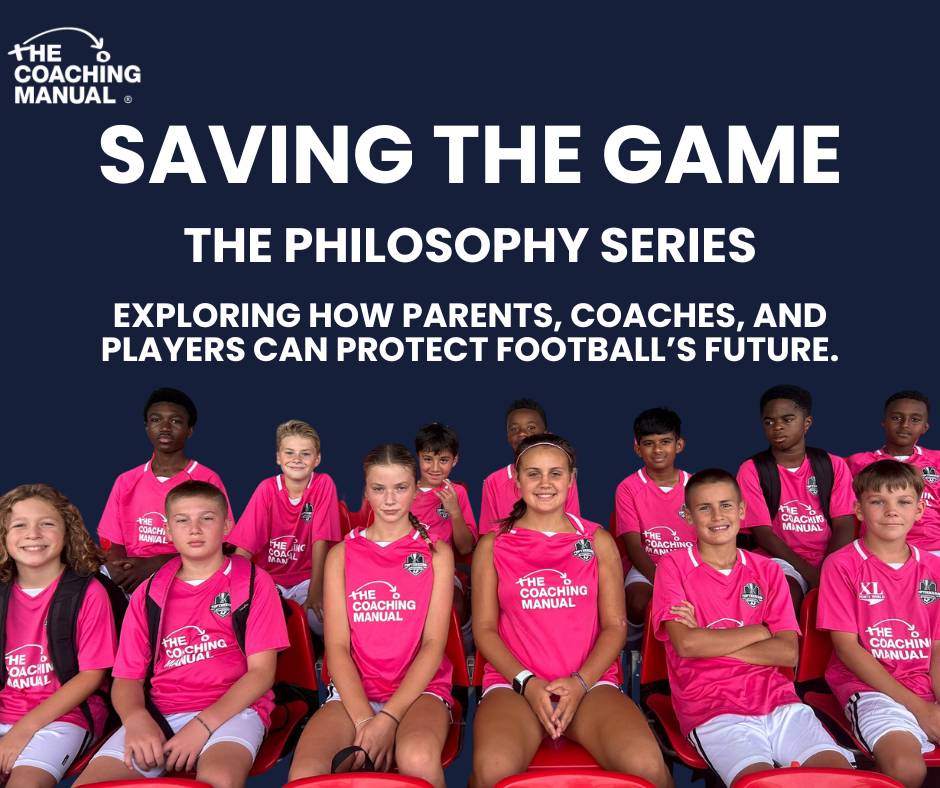It Takes a Village
There’s an old African proverb that says, “It takes a village to raise a child.” Ubuntu carries that same truth: “I am because we are.”
It’s the idea that a person only becomes a person through others – that who we are is shaped by the people around us. In football, that’s not just philosophy – it’s reality.
Every child who steps onto a pitch is shaped by the coach who believes in them, the parent who cheers with patience, the teammates who pass instead of show off. Football can’t raise a child alone. But a team, a club, a community – can.

The Team as a Village
When a child joins a team, they’re not just learning how to play. They’re learning how to belong. They discover what it means to contribute, to be accountable, to trust, to rely on others.
Ubuntu reminds us that football is more than performance. It’s a space where children learn that their actions matter – not because of what they achieve, but because of how they affect others.
When one player gives everything for the team, they teach sacrifice. When another lifts a teammate after a mistake, they teach empathy. This is what Ubuntu looks like in football: shared growth, shared care, shared purpose.
The Role of the Coach
A coach is one of the most influential adults in a child’s life. Ubuntu challenges us to see coaching not as control, but as connection.
The best coaches create environments where every child feels seen. Where winning matters – but not more than belonging. Where respect is modelled, not demanded.
When we coach with Ubuntu, we stop asking “What can I get from this player?” and start asking “What can we build together?”
The Role of Parents
Parents are the emotional climate of youth football. Every cheer, every sigh, every post-match comment teaches children something about values.
Ubuntu asks us to parent with perspective – to see every match as a moment in a much bigger journey. When parents celebrate teamwork, sportsmanship, and resilience, they remind children that their worth doesn’t depend on a result.
A quiet “well done for helping your teammate” is worth more than a loud “well done for scoring.” Because one builds ego; the other builds the content of their character.
The Role of the Team
In an Ubuntu team, the child who scores and the child who sits patiently on the bench are equally important. Every player contributes to the collective spirit – through effort, energy, humour and humility.
When a team lives by Ubuntu, they win together, lose together, grow together. They understand that success isn’t about one person shining; it’s about everyone shining because of each other.
A truly great team doesn’t just create good footballers. It creates good people.

The Club as Community
Clubs can embody Ubuntu by creating spaces that value care over criticism. A child shouldn’t fear making mistakes – they should trust that their “village” will not judge them and will help them learn from them.
This means welcoming parents into the process, valuing volunteers, and building culture from the ground up. A club that lives Ubuntu becomes more than a football environment – it becomes a community of growth.
The Bigger Picture
Ubuntu football doesn’t end at full-time. When children learn that they are part of something larger – a team, a community, a shared story – they take that lesson into school, other interests, the world.
They learn empathy at right-back. They learn accountability in midfield. They learn leadership through listening, not shouting.
Football becomes a vehicle for life lessons – the kind that last long after their final whistle.
Closing Reflection
It really does take a village to raise a child. And for many young people, that village looks like a football club.
Ubuntu reminds us that every word, every tone, every action from adults shapes not just how a child plays – but who they become.
“I am because we are.” That’s more than a proverb. It’s a challenge. To make football a place where children are raised not just to win – but to belong, to care, and to grow.

